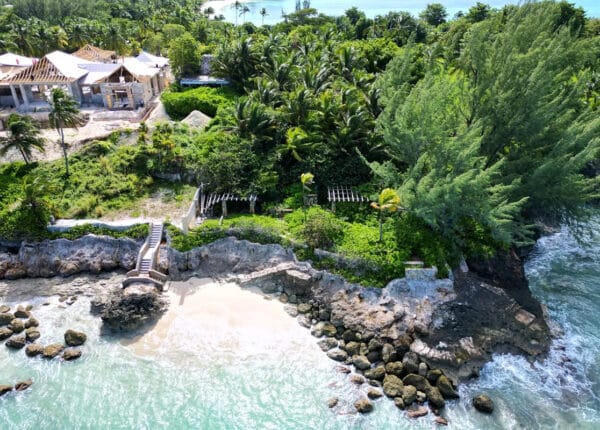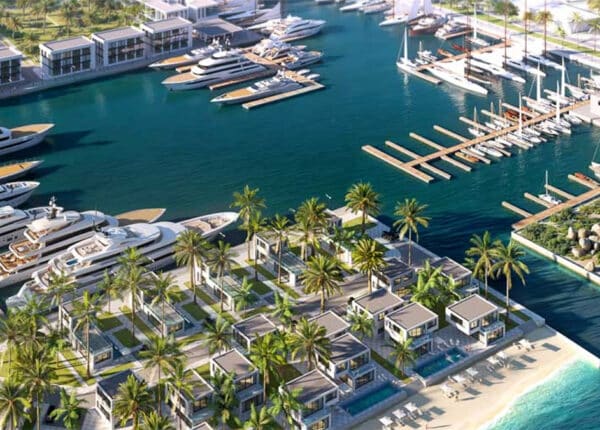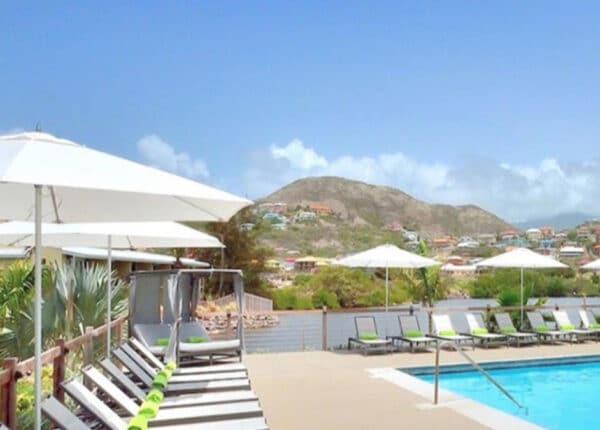How Coronavirus Is Affecting Caribbean Hotel Projects
By Joe Pike, Special Contributor
More than 130 hotel projects have been delayed in the Caribbean due to the ongoing coronavirus (COVID-19) pandemic, said Frank Comito, CEO and director general of the Caribbean Hotel and Tourism Association (CHTA).
Comito, who attributed all statistics to STR, told Caribbean Journal Invest that of the total 133 stalled projects, 62 were under construction and 71 were in “some form of planning phase.”
He said the hotels that were currently under construction were all expected to open within the next two years and now the future is uncertain. Comito said the halted projects represent a total of roughly 30,000 hotel rooms that were expected to be added to the region’s inventory.
Comito said about 15,000 hotel rooms were under construction and roughly 15,000 hotel rooms were in the early stages of development plans.
Although he noted that some of the bigger hotels that can “weather the storm” financially for several months, he also pointed out that others are in “an immediate cash flow situation.”
“Most of the cash flow in the industry is generated in the first four-to-five months of the year and we basically have taken half of that out of the equation,” said Comito, “so some folks will find it very difficult to get through the next few months. It’s really the mom-and-pop hotels we are scared for.”
According to a statement made on April 2 on the CHTA’s official website, “This week we’ve moved to a near complete suspension of hotel operations throughout the Caribbean, as most destinations have issued travel advisories and international carriers have discontinued flights to most destinations.”
Comito said the Dominican Republic had the most hotels, 36, in the Caribbean that were either under construction or in the early planning stages, and are now all halted.
“Everything now is in a stop period, but they will all resume as soon as the situation ends” said Lucien Echavarria, Northeast director of the Dominican Republic Ministry of Tourism. “Basically, we don’t have any info or foresight now [about when the pandemic will end], so we can only hope and continue to support the hotels.”
Echavarria said perhaps the most notable hotel project affected was a Ritz-Carlton Reserve property originally set to open in late 2021/early 2022 in Cabarete. Currently, there is only one Ritz-Carlton Reserve in the Caribbean in the form of Dorado Beach, a Ritz-Carlton Reserve in Puerto Rico.
“We expect that to be little a delayed now because of the situation,” she said, “but we are all hoping we can get back on track and they can resume with construction soon.”
Comito said Jamaica, Cuba, Puerto Rico and Antigua round out the top five Caribbean islands with the most hotel projects affected.
“For the hotel industry to recover, the most important first step is to get air service back into the island,” said Donnie Dawson, deputy director of tourism, sales/USA and Latin America for the Jamaica Tourist Board. “You can’t have hotels without air.”
Dawson said not having any tourism from New York City, which is now considered by many health officials as the epicenter of the coronavirus in the U.S., is especially crippling Jamaica’s economy.
In fact, Dawson said vacationers coming from New York State make up roughly 30 percent of Jamaica’s total arrivals.
But he also said it will be tourists from New York and other places close to Jamaica that will bring the country’s hotel industry back.
And what other destinations’ hotels does Dawson expect to see the largest growth once the pandemic finally concludes?
“When this is all over, it’s going to be a dog-eat-dog world,” he said, “but the three areas that will recover faster [than the rest of the world] is the Caribbean, Mexico, [specifically] Cancun and the Riviera Maya, and Hawaii.
“People are going to want to not just feel safe, they are going to want to be close to home,” continued Dawson. “If I’m in Jamaica, I can get back to New York in a couple of hours. If I’m in Cancun, I can get back to Dallas in a couple of hours.”
But Comito noted that a recovery in hotel investment in the region may not exactly be immediate once the pandemic ends.
“I expect we will see a slight down tick in the supply [following the pandemic], but as we’ve seen with the 2017 hurricanes,” said Comito, referring to the back-to-back category 5 hurricanes the region sustained that year, “there will be investors looking at that available existing inventory.”
Dawson also warned people who are overly optimistic about seeing an immediate bounceback in the hotel industry following the pandemic. In fact, he said he doesn’t expect the Caribbean hotel industry to begin its recovery until late next year.
“This isn’t going to be like turning a spigot,” Dawson said. “There will be a slow, gradual recovery. I’m looking at the winter of 2021. That is when I think things will gradually get better.”
But although it may take some time, Comito remains optimistic about the future of the region’s hotel industry.
“If you follow a 20-year trend line, we in the Caribbean have seen global setbacks from recessions to natural disasters,” he said, “but the resiliency of the Caribbean is amazing, and we fully expect to bounce back from this.”


